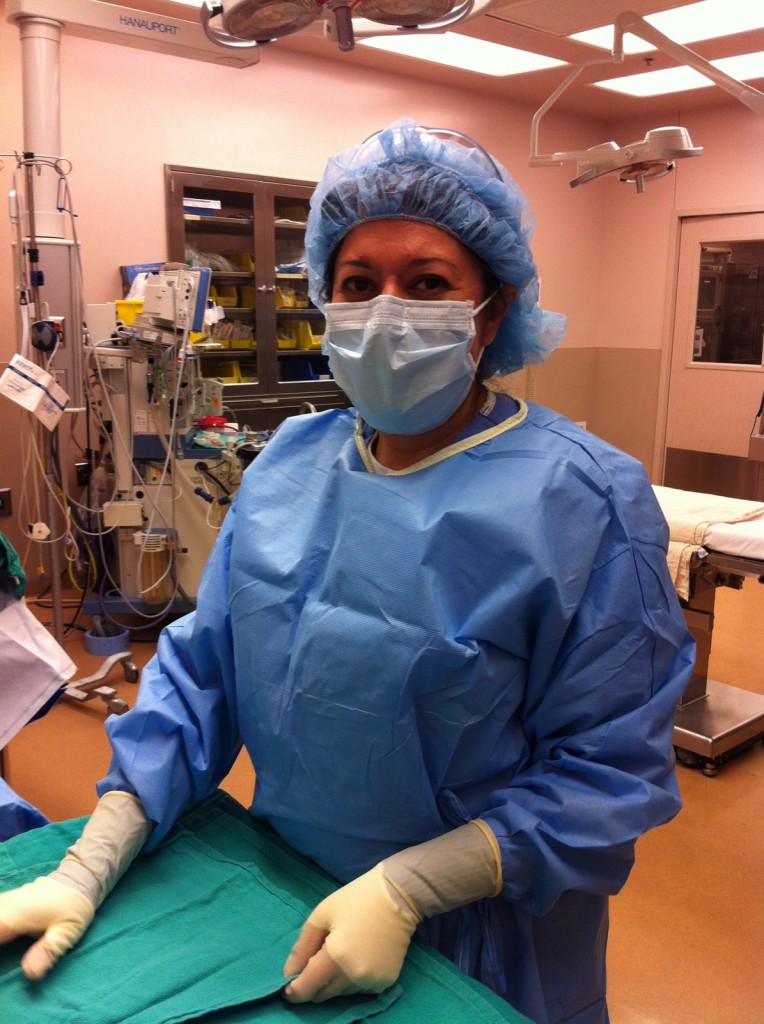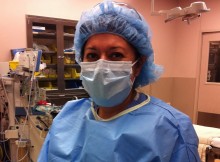
By Laura P. Ortiz / Guest Columnist
I don’t recall exactly how and when I received my calling to go back to school and become a surgical technologist, I just remember that when I got it, it was a physical hunger, an emptiness that constantly consumed me. The more I thought of having a career in which I assisted surgeons in surgical procedures the hungrier I got.
Thirteen years ago I was accepted and graduated from the surgical technology program at Del Mar College. I worked as a private surgical technologist with a local orthopedic spine surgeon for five years, then eight years as the lead surgical technologist for the O.R. Neurology Department at Christus Spohn Shoreline Hospital. I have also been blessed with the opportunity to teach the surgical technology students at Del Mar College as an adjunct instructor twice a week.
The life of a surgical technologist is a life that very few people understand. Surgical technologists wake up early — very early to prepare for surgeries that are scheduled to begin at 7 or 7:30 a.m. We meet our work families at the assignment board at 6:30 a.m. in our blue scrubs and paper hat and shoes with covers. We pray, have a short meeting, and receive our assignments for the day. From that moment on, the patient assigned to me and the surgery he or she is about to have is the most important thing on my mind. I know that my patient will be in a vulnerable state and I have to make sure that everything I do will be to help the surgeon accomplish what he needs to do during the procedure.
In the operating room suite, I work with a circulating nurse and an anesthesia provider. Each member of the O.R. team has a job to do, and each member has to have some knowledge of the other members’ job to be able to help one another out. It is not surprising to see someone stepping out of their role to help someone do another job.
The surgical technologist sets up and works from a back table and a smaller table called a mayo stand. Depending on the surgical procedure, setting these up can be time consuming. Some surgical procedures require me to set up with 10-12 instrument pans. Most of the instrument pans are light, but there are some heavy ones so I have to make sure I use proper technique for lifting.
Setting up the back table requires a great deal of planning. I have to imagine the actual surgery to make sure I have gowns, and gloves for every person scrubbing in, every drape, instrument, and medication that I will need and where I need it. I need to know or find out details such as the positioning of the patient, what side the surgeon will stand on and also if the patient is larger than the average patient. Every instrument that the surgeon will need must be placed in a spot that is easily accessible. Every medication he will need will need to be drawn up in the correct syringe with the correct needle and labeled correctly. The suture the surgeon will need during and at the end of the procedure will need to be loaded and ready to use. I understand that at times I may be working in the dark with little to no light on my working field. There have been times that I have worked in pitch darkness with only the light of a microscope occasionally reflecting onto my instruments on my mayo stand. My skills and patience were tested on those days.
Some days I feel that time is my worst enemy. On busy days it seems as though there is no time to finish everything that needs to be done. I am constantly looking at the clock as I am setting up a surgery that requires several instrument pans and medications. I have to be completely ready for when the surgeon asks for the blade to make the incision. It is so stressful sometimes that I can feel myself sweating under my surgical gown. I don’t get breaks and lunches at a specific time. I get them whenever there is someone available to relieve me and sometimes I don’t get them at all! There are surgeries that run 30 minutes and some that run for hours. I spend most of the day standing so I am exhausted at the end of my shift.
I absolutely love being a surgical technologist! I would not trade it for any other job. It is a very rewarding and challenging career. I love the stress and the challenges that my job gives me and I love making a difference in another person’s life. And when I am standing next to a surgeon in surgery passing instruments, holding a retractor in someone’s abdomen, holding a heart in my hand, wearing a bubble suit to help repair a hip or knee, helping expose a brain to remove a malignant tumor I know that I will go home knowing I did my Lord’s work.
After all, “we are His hands.”





